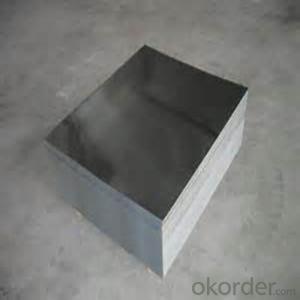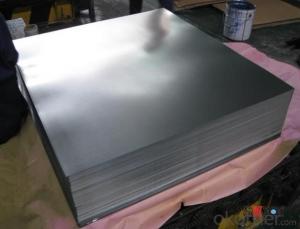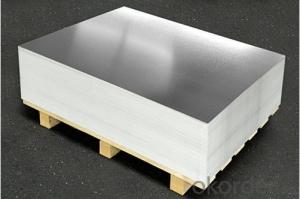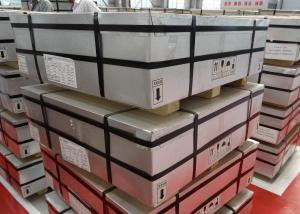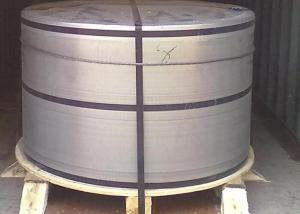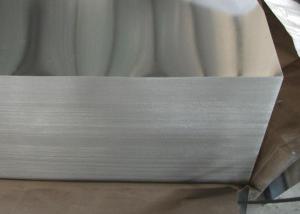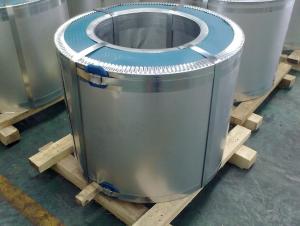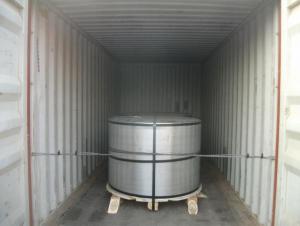Prime Quality TFS for Crown Caps Industry
- Loading Port:
- Shanghai
- Payment Terms:
- TT OR LC
- Min Order Qty:
- 25 m.t.
- Supply Capability:
- 25000 m.t./month
OKorder Service Pledge
OKorder Financial Service
You Might Also Like
Item specifice
1.Structure of Prime Quality TFS for Crown Caps Industry Description
Tin Free Steel (TFS) is thin black plate with two coats; one of metal chrome film and the other of chromium oxide. TFS is ideal for the manufacturing of crowns, container ends & shallow drawn cans etc. TFS is also known as Chromium coated steel.
2.Main Features of the Prime Quality TFS for Crown Caps Industry
Corrosion Resistant
Easier to recycle
Sulphur Blackening Resistance: TFS has sulphur resistance properties, which can be used for canning protein- rich food such as fish.
Filiform Rust Resistance: Filiform is superficial corrosion of the base metal. TFS has a superior base metal which makes it corrosion resistance.
Coating: The coating in TFS is not amphoteric (having the characteristic of an acid and a base, is a compound that can react as either an acid or a base). This means that detergents and dispersion colors can be packed easily.
Paint Adhesion : TFS possesses better paint adhesion properties, thus making it ideal for DRD cans and adhesive bonded cans.
Internal Coating / Lacquering can be avoided in the case of TFS used to store motor oil or cooking oil.
3.Prime Quality TFS for Crown Caps Industry Images
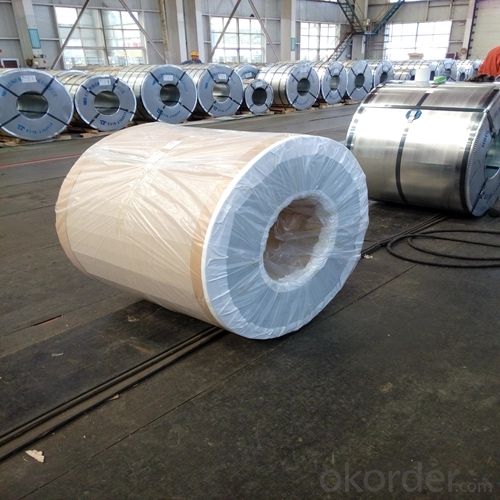
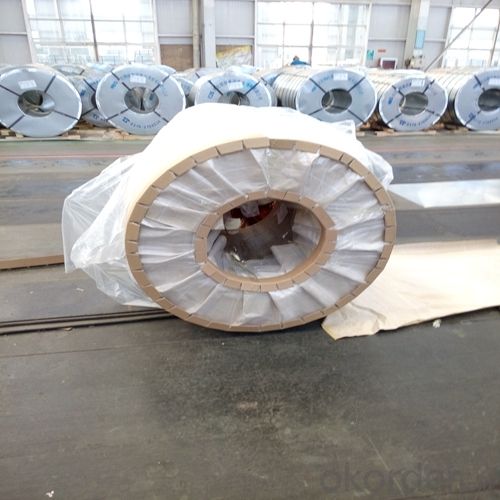
4.Prime Quality TFS for Crown Caps Industry Specification
Thickness 0.14mm to 0.35mm
Width 500mm to 1200mm
Length : As per customers specification
Temper : T1 to T5, DR 7 to DR 9
5.FAQ of Prime Quality TFS for Crown Caps Industry
-What is MOQ?
Our MOQ would be 25 tons.
- Do you only have prime quality TFS ?
We can supply both prime and second quality TFS.
- Q:What are the main applications of tinplate in the automotive industry?
- Tinplate is primarily used in the automotive industry for various applications such as fuel tanks, engine covers, battery casings, and other components that require corrosion resistance and durability. It provides protection against rust and enhances the overall aesthetic appeal of these parts.
- Q:How does tinplate contribute to sustainability efforts?
- Tinplate contributes to sustainability efforts in several ways. Firstly, it is a highly recyclable material, which means that it can be reused multiple times without losing its properties. This helps reduce the demand for new raw materials and minimizes waste generation. Additionally, tinplate is often used as packaging material for food and beverages, providing a protective and durable barrier that extends the shelf life of products, reducing food waste. Furthermore, tinplate cans are lightweight, making them more energy-efficient during transportation, thus reducing carbon emissions. Overall, tinplate's recyclability, protective properties, and energy efficiency make it a sustainable choice for various industries.
- Q:Can tinplate be painted or printed on?
- Yes, tinplate can be painted or printed on.
- Q:How does tinplate perform in terms of lightness and portability?
- Tinplate is relatively lightweight and portable due to its thin and flexible nature. It can be easily carried and transported, making it a convenient choice for various applications.
- Q:What are the different types of tinplate welding techniques?
- There are several types of tinplate welding techniques, including spot welding, seam welding, and projection welding.
- Q:What are the main challenges in tinplate coating thickness control?
- One of the main challenges in tinplate coating thickness control is achieving uniformity across the entire surface of the tinplate. The coating thickness must be consistent and within the desired range to ensure proper protection and functionality of the tinplate. Additionally, controlling the coating thickness requires precise measurement and monitoring techniques as well as the ability to adjust the coating process parameters in real-time to account for any variations or deviations. Another challenge is ensuring the adhesion of the coating to the tinplate surface, as poor adhesion can lead to coating defects and reduced performance. Lastly, controlling the coating thickness while maintaining cost-effectiveness can be a challenge, as it requires optimizing the coating process to minimize material waste and reduce production costs.
- Q:How is tinplate decorated or printed?
- Tinplate is commonly decorated or printed using a process called lithography. This involves applying an image or design onto the tinplate using special inks or paints. The tinplate is first coated with a primer, followed by the application of the desired design using a lithographic press. The design is typically transferred onto the tinplate using a printing plate, which is etched or engraved with the desired image. Once the design is applied, the tinplate is typically baked or cured to ensure the ink or paint adheres properly. This process allows for intricate and colorful designs to be printed on tinplate, making it a popular choice for decorative and promotional items.
- Q:What are the potential health risks associated with tinplate packaging?
- Potential health risks associated with tinplate packaging include the possibility of contamination from lead, which can be harmful if ingested, as well as the risk of bisphenol A (BPA) leaching into food or beverages, potentially disrupting hormone function. Additionally, there is a concern that the coating inside tinplate cans may contain harmful chemicals that could migrate into the contents.
- Q:Can tinplate be used for paint cans?
- Yes, tinplate can be used for paint cans. Tinplate is a commonly used material for manufacturing paint cans due to its durability, corrosion resistance, and ability to preserve the quality of the paint inside. It also provides a smooth surface for labeling and branding purposes.
- Q:How does tinplate contribute to the overall ease of opening and closing packaging?
- Tinplate contributes to the overall ease of opening and closing packaging due to its inherent strength and durability. It provides a sturdy and rigid structure that helps maintain the integrity of the packaging, preventing it from easily getting crushed or deformed. This ensures that the packaging remains intact and easy to handle, minimizing the risk of accidental opening or spillage. Additionally, tinplate often comes with convenient features such as easy-to-use closures or pull-tabs, enhancing the user experience and making it effortless to open and close the packaging.
1. Manufacturer Overview |
|
|---|---|
| Location | |
| Year Established | |
| Annual Output Value | |
| Main Markets | |
| Company Certifications | |
2. Manufacturer Certificates |
|
|---|---|
| a) Certification Name | |
| Range | |
| Reference | |
| Validity Period | |
3. Manufacturer Capability |
|
|---|---|
| a)Trade Capacity | |
| Nearest Port | |
| Export Percentage | |
| No.of Employees in Trade Department | |
| Language Spoken: | |
| b)Factory Information | |
| Factory Size: | |
| No. of Production Lines | |
| Contract Manufacturing | |
| Product Price Range | |
Send your message to us
Prime Quality TFS for Crown Caps Industry
- Loading Port:
- Shanghai
- Payment Terms:
- TT OR LC
- Min Order Qty:
- 25 m.t.
- Supply Capability:
- 25000 m.t./month
OKorder Service Pledge
OKorder Financial Service
Similar products
New products
Hot products
Related keywords
